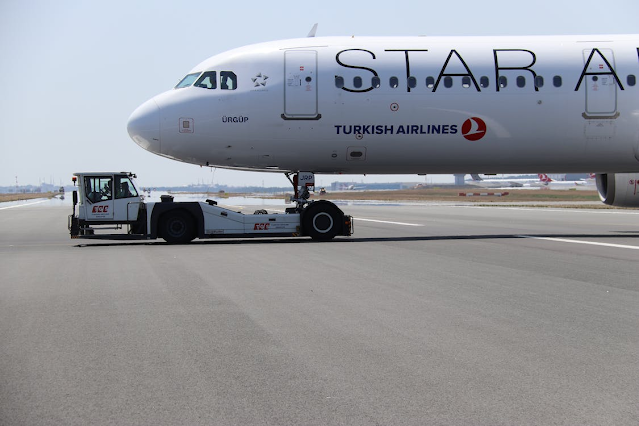Picture this: you're at the airport, all packed and ready to go, only to find out that your flight has been cancelled. Whether it's due to weather, mechanical issues, or other unforeseen circumstances, it can be a frustrating and stressful experience. In this blog post, we'll explore some tips and strategies for what to do when your flight gets cancelled, so you can minimize the disruption to your travel plans and get back on track as soon as possible.
Understanding Your Rights as a Passenger:
When your flight is cancelled, it's important to understand what your rights are as a passenger. Depending on the circumstances, you may be entitled to compensation, accommodations, and rebooking options from the airline. For example, if your flight is cancelled due to reasons within the airline's control (such as a mechanical issue), you may be entitled to compensation under the EU's Passenger Rights Regulation. If your flight is cancelled due to reasons outside of the airline's control (such as bad weather), you may not be entitled to compensation, but the airline should still provide you with rebooking options and accommodation if necessary. Understanding your rights can help you advocate for yourself and ensure that you're treated fairly by the airline.
Contacting the Airline:
If your flight is cancelled, it's important to get in touch with the airline as soon as possible to discuss your options. You can usually do this by calling the airline's customer service line or by visiting the airline's customer service desk at the airport. When you contact the airline, be prepared to provide your booking reference number and any other relevant information about your itinerary. You may also want to have a clear idea of what you're looking for in terms of rebooking options (such as a specific date or time), as this can help the customer service representative find a suitable alternative for you.
Exploring Alternative Routes:
If your flight is cancelled, you may be able to find alternative routes to your destination. This could involve booking a flight with a different airline, taking a train or bus, or even renting a car and driving. When exploring alternative routes, be sure to consider factors such as cost, time, and convenience. For example, taking a train may be cheaper than booking a last-minute flight, but it may also take longer and require more transfers.
Rebooking with a Different Airline:
If the airline that cancelled your flight can't offer a suitable alternative, you may want to consider rebooking with a different airline. This could involve booking a new flight online or working with a travel agent to find a suitable alternative. When rebooking with a different airline, be sure to check whether you'll be charged any fees or penalties for cancelling your original flight, as this can affect the overall cost of your trip.
Managing Your Schedule:
If your flight is cancelled, it's important to manage your schedule and any other travel arrangements you may have made (such as hotel reservations). Depending on the circumstances, you may need to adjust your itinerary or notify any travel companions or hosts of your delayed arrival. It's also a good idea to stay informed about any updates or changes to your travel plans, as these can affect your overall schedule.
Dealing with Travel Insurance:
If you have travel insurance, it's worth checking whether it covers cancelled flights. Depending on the policy, you may be able to file a claim to recoup some of the costs associated with the cancelled flight, such as rebooking fees or hotel accommodation. When dealing with travel insurance, be sure to read the policy carefully and follow any instructions for filing a claim.
Finding Support:
When your flight is cancelled, it can be helpful to find support and information from a variety of sources. This could include airline customer service representatives, airport information desks, and online resources such as social media or travel forums. By seeking out support and information, you can stay informed about your options and potentially find solutions to any issues or challenges you may encounter.
Staying Calm and Patient:
When your travel plans are disrupted by a cancelled flight, it can be easy to feel frustrated, stressed, or even angry. However, it's important to stay calm and patient throughout the process. Remember that the airline representatives you speak with are often dealing with multiple customers who are in the same situation as you, and they're doing their best to find a solution. By remaining calm and patient, you'll be more likely to receive helpful support and assistance.
Being Flexible:
When your flight is cancelled, it's important to be flexible and adaptable. This could mean considering alternative routes or modes of transportation, adjusting your itinerary, or even changing your travel plans altogether. Being flexible can help you find a solution that works for you, and it can also make the process less stressful and frustrating.
Planning Ahead:
Finally, it's a good idea to plan ahead and be prepared for the possibility of a cancelled flight. This could involve packing a carry-on bag with essentials such as a change of clothes and toiletries, booking flexible or refundable tickets, or researching alternative routes and modes of transportation. By planning ahead, you can minimize the impact of a cancelled flight and ensure that you're prepared for any unexpected challenges that may arise during your travels.
In summary, when your flight is cancelled, there are several steps you can take to minimize the disruption to your travel plans. By understanding your rights as a passenger, contacting the airline, exploring alternative routes, rebooking with a different airline, managing your schedule, dealing with travel insurance, finding support, staying calm and patient, being flexible, and planning ahead, you can navigate the situation with confidence and ease.
